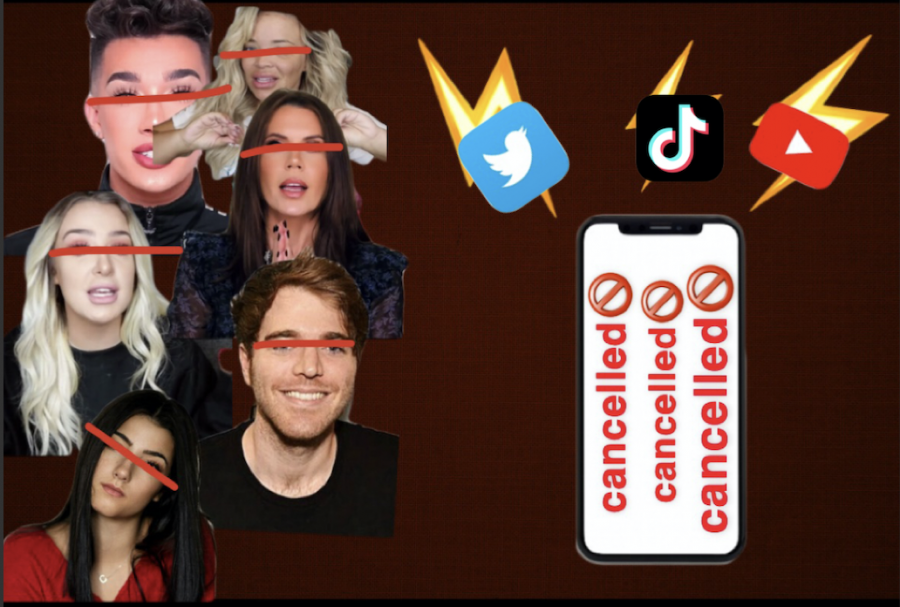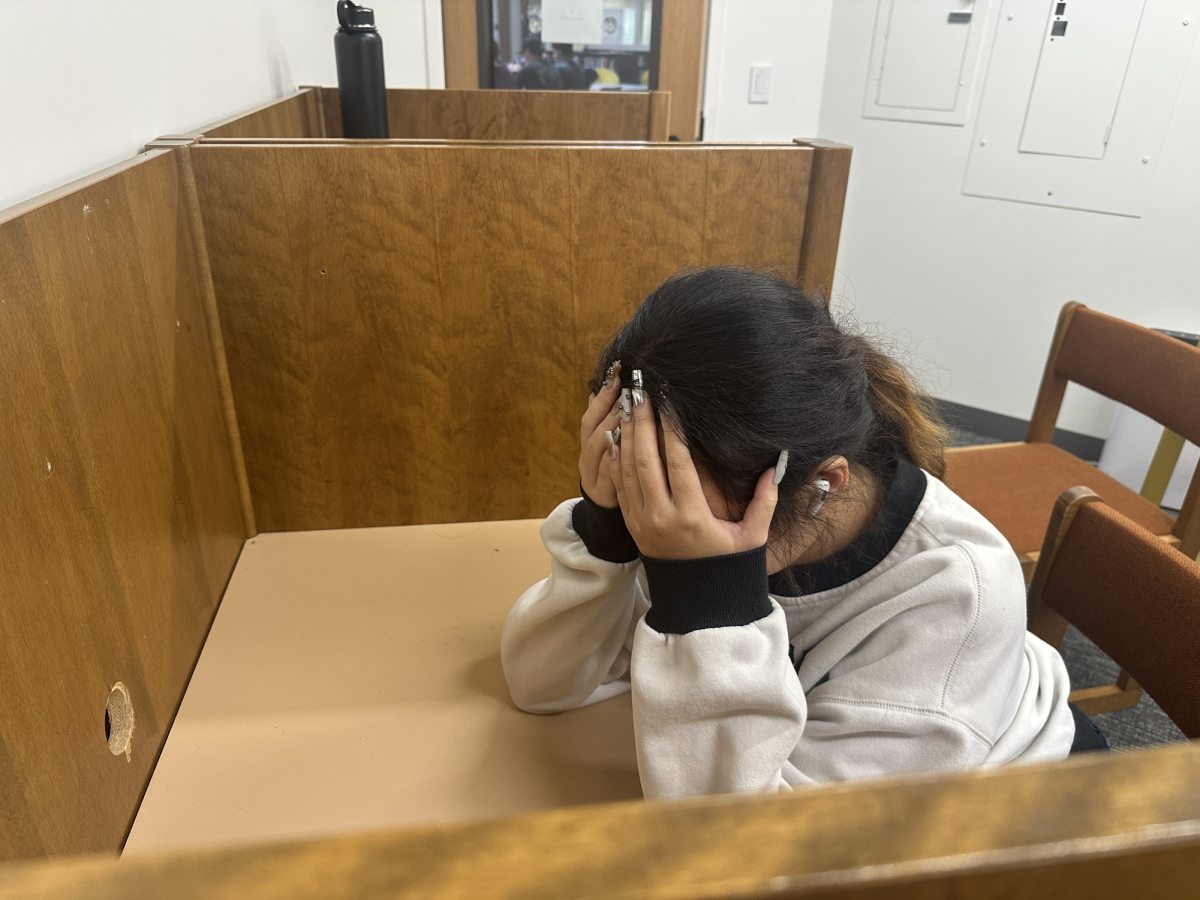You probably saw #cancelled or #cancelled2020 floating around social media all of last year. Like a trend, countless influencers and creators fall victim to this mindset as a counterproductive way to “cleanse” their platforms. “Cancel culture” is when social media users come together to take away the platform of people, brands, and media outlets due to problematic beliefs or comments. Although it began as a way to bring light to the offensive views and actions of some social media influencers, it has spiraled into an uncontrollable and toxic viewpoint that thrives off of its hypocrisies and inconsistencies.
Firstly, “cancel culture” can be excessively cruel and dangerous. For example, in 2019, Youtubers Tati Westbrook and James Charles were involved in a major scandal regarding James endorsing a hair vitamin that was a direct competitor to Tati’s product. Tati took to YouTube to speak out against James, who she was friends with prior to the feud, and shared her feelings of betrayal and other stories about James’s inappropriate behavior. Shortly following the video, James was considered “cancelled,” causing him to lose over three million subscribers, a serious detriment to his income and career. More than just a financial forfeiture, James received death threats and hate comments, solely based on Tati’s claims that were later proven false.
James revealed that after the incident, he had thought about ending his life due to the hate he was receiving, and how he had fallen to a very dark mental headspace. There is no circumstance to make such appalling comments that would cause an individual to feel like the world is against them, especially over a hair vitamin. Even if Tati’s claims were true, the correct response would have been to help James learn from his actions instead of threatening him. It is very easy for people to make harsher comments behind a screen than they would in real life; that is why social media consumers should facilitate conversations for change instead of cancelling a person and their career.
“Cancel culture” holds social media influencers to a very high standard because of the responsibility they hold right in their title—they influence. With that in mind, it is important that they make sure they are being good role models for all of their followers, using their platform to speak out about important issues, and not encouraging inappropriate behaviors. However, there will always be times when influencers make decisions that are disrespectful and irresponsible, so there needs to be better ways to handle the situation.
Opening up serious conversation on why their actions were incorrect is a great place to start. Instead of making a joke (as seen in diss tracks) about the issues while sending hate, it is important to educate the influencer on why their actions were wrong, and how they can improve in the future. Ultimately, it is up to those who were targeted and offended by the creator’s words or actions to decide if they accept the apology and change as a form of restorative justice; specifically, creating a dialogue about the issue at hand is a great way to allow for a learning experience and provide long-lasting positive effects.
However, if the influencer continually repeats their actions and refuses to recognize the power they hold, it may be best if their platform is simply removed, a collective decision made by the communities affected and involved. If people simply begin unfollowing and stopping engagement with their content, they would not be in a position to continue spreading disrespectful comments or promoting inappropriate actions.
Social media has allowed for information and ideas to be spread at the speed of light, meaning our words and actions have the power to reach millions more than they could without the reach of digital media and technology. It is important to make these platforms a safe space and encourage kind and supportive behavior for both users and creators, which is why we should cancel “cancel culture.”







![Many Webb students spend their free time in the library watching a popular TV show like Riverdale and Euphoria. “Based off what I’ve seen, like in Euphoria, because the actors are older, they don't showcase an actual high school life properly,” Sochika Ndibe (‘26) said. “Since [the actors] are older [and] playing a teenager, from a girl’s perspective, it is going to make you think you should look more developed at a young age.” The actor, who plays Veronica Lodge, was 22 years old at the time of filming.](https://webbcanyonchronicle.com/wp-content/uploads/2025/03/Antecol-Media-affects-how-society-functions-graphic-1200x900.png)







